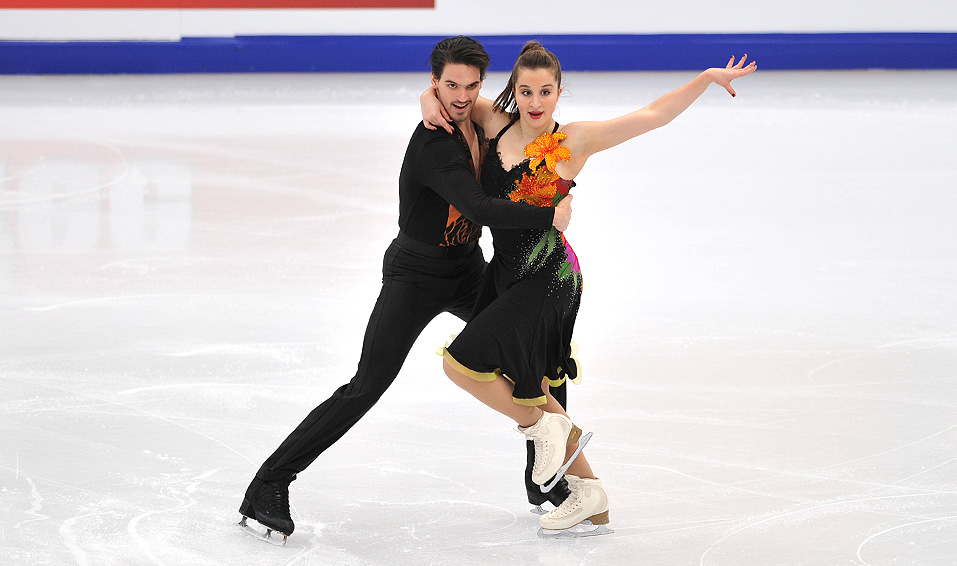Tedy Markova, U3 Psychology, is not one to back away from fear. As the 21-year-old Bulgarian figure-skater hangs up her skates on a successful international career, she recalls her journey and the lessons she has learned along the way.
“When you have to go out on the ice, all by yourself, especially at the big competitions where there are a lot of people, that’s scary,” Markova said in an interview with The McGill Tribune. “It’s just me on the ice, and they’re all judging me. It’s frightening, yes, but it also gives you this weird thrill, this rush.”
That rush, an endless tango of fear and courage, became a theme throughout her life, from the time she first stepped on to the ice to her final competitive appearance at the 2019 European Figure Skating Championship in Minsk, Belarus. The 14-year-long journey earned her the nickname “The Bulgarian Swan”; however, like most great sports stories, this one’s beginnings were humble.
Markova’s love of the ice started when she was just five-years-old, during a visit to the skating rink in her hometown of Sofia, Bulgaria.
“I remember when I started, I would spend most of my time on my butt, just rolling around on the ice [with] people yelling at me to get out of the way,” Markova said. “But, when I started to finally stand upright, it was just so satisfying.”
While Markova experienced falls and tumbles in those early days, she was quick to appreciate the people who were around her to pick her up. Her mother, in particular, played a key role in the beginning of her skating career.
“Whenever I got off the ice and went, ‘I’m never coming back!’ [my mother] was the one telling me, ‘Tedy, pull yourself together, this is important to you, you got this,’” Markova said. “She taught me to go after my ambitions.”
Relocating to Montreal in 2017 was a big step for Markova. In addition to adapting to a new country and culture, she also had to balance the workload of being a university student and a professional athlete. But, with the added burden came new opportunities: A chance to learn and train with the very best in the sport.
“You have [in] Saint-Henri, one of the best ice dance schools in the world,” Markova said “It’s crazy, the Olympic champions, the World champions, they trained here. I loved Tessa [Virtue] and Scott [Moir] growing up. And sometimes [Moir] would come give us lessons. It was cool because these professionals were all so dedicated, and it was inspiring [because…] they were also humans like us.”
The training would pay off as Markova went on to compete in competitions across the globe. But, it was at the 2019 European Championships where, unbeknownst to her team, Markova would be skating competitively for the last time.
“I had been thinking about stopping for a while, so […] I knew this would probably be my last competition,” Markova said. “I didn’t want to tell anybody because it would discourage them, but I think [they] knew. It was really emotional, but honestly, I think it was for the [best]. It’s a lot of money, a lot of time, and a lot of effort I could put somewhere else. Of course, I’d been doing this for many years, but I had already come to terms with my decision.”
Life after skating has been just as hectic, but Markova remains a model student. In addition to having executive roles in clubs like the McGill Students’ SocieTea, she’s maintained a keen interest in research and works in a lab studying the physiological mechanisms of pain. Yet, her relationship with figure-skating is by no means over.
“I [want] to pursue a career in neuroscience, […] but someday […], I would like to coach and work with young children,” Markova said. “Maybe I can inspire them to like the sport as much as I [do].”








